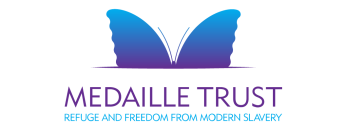No. 13 in a series of articles reporting on the responses of Caritas member organisations to the Covid-19 pandemic.
Greg Brister, Deputy Chief Executive of Catholic Children’s Society (Westminster) has said that, “despite the efforts of the Government to prevent families being made homeless, significant gaps and loopholes exist.” Families who are lodging have very few rights and can be evicted at short notice. Alongside this, the pressures of lockdown have led to a significant increase in domestic abuse and many desperate parents have had to flee their homes with their children, “taking with them nothing but the clothes on their backs”.
The Passage, which has supported people in hotels throughout the lockdown, and reports having fed 350 people daily, is working to keep people off the streets more permanently. Chief Executive Mick Clarke said, “The Passage’s Private Rented Sector team are now working hard to help people move on from hotels, and the Employment Team is also helping people access employment.” Mr Clarke reported he is working closely with Dame Louise Casey of the Government’s Rough Sleeping Taskforce, which is interested in The Passage’s Home for Good scheme. Mr Clarke describes it as “a befriending scheme that helps those resettled off the streets integrate into their new community and sustain their accommodation, by encouraging and supporting community partnerships across the faith and community sector.”
NOAH Enterprise, based in Luton, Bedfordshire, has worked with other agencies in Luton to house and feed rough sleepers over the past three months. Its head of welfare, Paul Prosser, said: “The next stage is to help people move on from the hotels into more sustainable accommodation”.
They have supported migrant rough sleepers with ‘no recourse to public funds’ and have helped them find work and become more self-sufficient. “We believe that meaningful and sustaining work requires continuous investment and support from the UK government” Mr Prosser said. “We are on the brink of launching a pioneering recruitment and training service linking keen workers with enthusiastic employers,” he reported, and “this inclusive social recruitment service will be a new model that we are ambitious will be transformative about changing the lives of former rough sleepers and giving dignity and hope”. Noah Enterprise believes central government decisions in this period could either prevent, or allow, a significant humanitarian issue on the doorstep.
In Birmingham, Father Hudson’s Care has been supporting 50 people in a city centre hotel, a provision which ends on 30 June. “Managing the hotel for the last three months has enabled us to build new links with the Council,” said Christy Acton, Deputy Community Projects Manager; “this has been a positive experience and we are feeling optimistic that the relationship will continue in this way in the coming months.” Staff of Father Hudson’s Care have supported the majority of the hotel guests to secure longer-term accommodation either through the Council or other housing providers. The Tabor House project will reopen on 1 July 2020, after being renovated and procedures revised to ensure it is Covid-safe.
Director of Caritas Salford, Mark Wiggin, said that “the problem goes well beyond accommodation, for many people who are homeless have complex needs and are drug and alcohol dependent with the addition of mental health issues amplified by the stress and uncertainty of life. We need more dual diagnosis services and there’s a real need to re-instate these services that have lost so much funding. Another area for advocacy is destitution – those with no recourse to public funding.”
Caritas Salford’s homelessness and destitution services have experience of many European Economic Area Migrants who have no access to services even if they are legally and technically entitled to them. Some who have been in Britain for years have never documented their legal entitlements as some may have been trafficked; others may not have been employed legally so do not have P45s or other proofs of work.
“We need far more investment in access to legal aid to untangle a plethora of legal and immigration hurdles that need to be overcome”, Mr Wiggin said. “As we come out of the coronavirus pandemic we need to stay focused on a ‘new normal’ that brings together service providers with the common goal of cooperation to create lasting change to the support systems that need reform and investment.”
This post is adapted from an article by Ellen Teague, first published in ‘The Tablet’ in association with CSAN.



